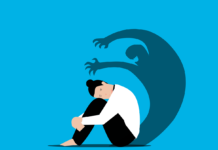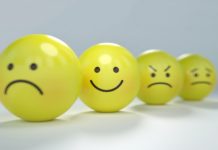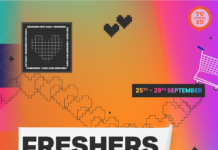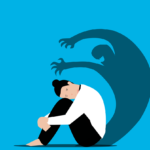“Wait… Are you on the pill?”
Nothing spoils the moment quite like being asked what form of artificial hormones or metal device has been ingested, embedded, injected or implanted into a part of your body.
But for any sexually active young woman in Ireland this question is all too commonly asked, and not just by potential sexual partners. Friends, family and doctors all seem to be so concerned with our method of birth control, but why is it that the pill seems to be the first and foremost spoken about form of contraception among young people?
Contraception has certainly come a long way through the ages, but when you really get involved in learning about what methods are available today, it becomes quite clear that we still have a long way to go in providing safe, chemical-free birth control that causes minimal side-effects.
What’s more is that there are in fact several forms of contraception that are very rarely even discussed by healthcare professionals as an option.
The Pill – More than just contraception?
As a young woman, I have experienced, on numerous occasions, being advised by doctors to go on the contraceptive pill.
Regardless of the fact that my reason for visiting was usually not to ask about a means of contraception, doctors seemed to jump to prescribing the pill to me for a number of ailments such as headaches, acne, mood disorders and irregular periods. For a large portion of my young-adulthood, it has felt as though every doctor I visited wanted me to take the pill, despite me having strong reservations about going back on it, due to the side effects I had experienced from taking it from the age of 16 to 19.
Healthcare professionals seem to have been advising young women to take the pill for numerous reasons, and many even suggest using the pill to skip periods long-term, but how safe is this?
Call me biased, but during my time on the pill I often questioned, what are the repercussions of using these artificial hormones to stop what should be a natural cycle for a woman’s body to go through?
As many will have experienced, menstruation can tell us a lot about how healthy our body and reproductive system is. Often, an irregular or unusual menstrual period can be a huge signifier for when a woman is unwell, overly stressed, has an unhealthy diet, or possible reproductive irregularities. Should we really put a stop to something that could be such a strong signifier to us when our body is not working as it should be?
For many young women, taking the pill for an extended period of time can be a blessing in terms of a reliable form of birth control, as well as other benefits such as managing acne and symptoms of certain disorders such as PCOS (Polycystic Ovary Syndrome).
However, many young women experience a more negative side to the pill. My experience with the pill is one I find difficult to describe in a way that people will understand. Within a couple of months of starting my pill at age 16, I began to change dramatically. I became quick to anger, I had irrational worries and often became paranoid. I would lash out at those I loved because I didn’t understand what was going on inside my head. The acne I’d had cleared up and I had glowing, healthy-looking skin, but on the inside I felt down, confused, overly suspicious and unable to control my emotions. For 3 years I put my unstable mood down to anxiety and depression, and unresolved issues from my past. To this day, not I nor anybody else can ever prove that the pill was or was not the cause of this, but upon coming off the pill, I experienced a feeling of familiarity with myself again.
It felt as though for a long time, I had been living in someone else’s head, I didn’t feel like myself, I didn’t understand why I reacted in certain ways to things, or how irrationally I behaved at times. Within a month of coming off the pill, I felt as though I knew myself again.
Although I still struggled with personal issues in my mental health, I felt I could pinpoint where my emotions and reactions to things were coming from, I no longer felt as though these were being controlled by something other than myself and my own mind, and I felt as though I knew how to read myself again.
Non-hormonal? Non-negotiable…
In my experience, opting for non-hormonal methods of contraception has never really been plain-sailing. When it came time to find an alternative method of birth control I visited a women’s health clinic, after which having been excessively questioned about my reasons for not wanting to use hormonal contraceptives, and even being laughed at for asking for information about the cervical cap and diaphragm, I felt utterly disheartened and alone.
I took it upon myself to visit another doctor, at a family planning clinic in the city centre. Luckily, this time round, my choices were respected, and 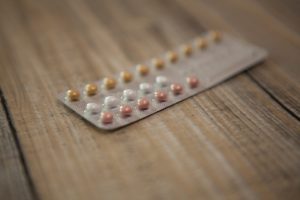 when I enquired about a diaphragm as a possible method, I was given all of the information by a very understanding doctor in a very unbiased manner, and was respected in my wish to make a second appointment in order to have some time to make an informed decision on what method would be right for me.
when I enquired about a diaphragm as a possible method, I was given all of the information by a very understanding doctor in a very unbiased manner, and was respected in my wish to make a second appointment in order to have some time to make an informed decision on what method would be right for me.
My appointments with my GP, women’s health clinics and family planning clinics, along with the research I carried out by myself on contraception, spanned over the course of approximately a year before I found a method I could work with. It is utterly unacceptable that any young woman should struggle for this long to find a safe and healthy method of contraception. Even after all of my
visits to doctors, any natural or non-hormonal method I have ever tried has come with serious downfalls, and it’s become very clear that we’re not as advanced in contraception as many people might think.
We live in a society that, for a long time, has been overly trusting of healthcare professionals. We are taught that no matter what a doctor says, we do it, no matter what prescription we’re handed, we take it and we don’t question it.
Doctors are incredible, and their extensive knowledge and expertise does deserve respect and recognition. However, I believe that it’s time for young women to have more say in what happens to their bodies, to ensure they know all of the information available on different methods of contraception, and to make their own, informed decisions based on their personal beliefs and requirements. Ladies, the truth is, nobody knows your body more than you do, and nobody else can tell you what works for your body more than you can yourself. When it comes to what goes into your body, you should always have the last word.
This article is an opinion piece and although it contains information that is intended to help the readers be better informed consumers of health care, it is presented food for thought rather than medical warning. Always consult your doctor for your individual needs.
A 22 year-old cat fanatic and final year student of Contemporary Visual Culture, aspiring to travel the world and write about her adventures along the way.









